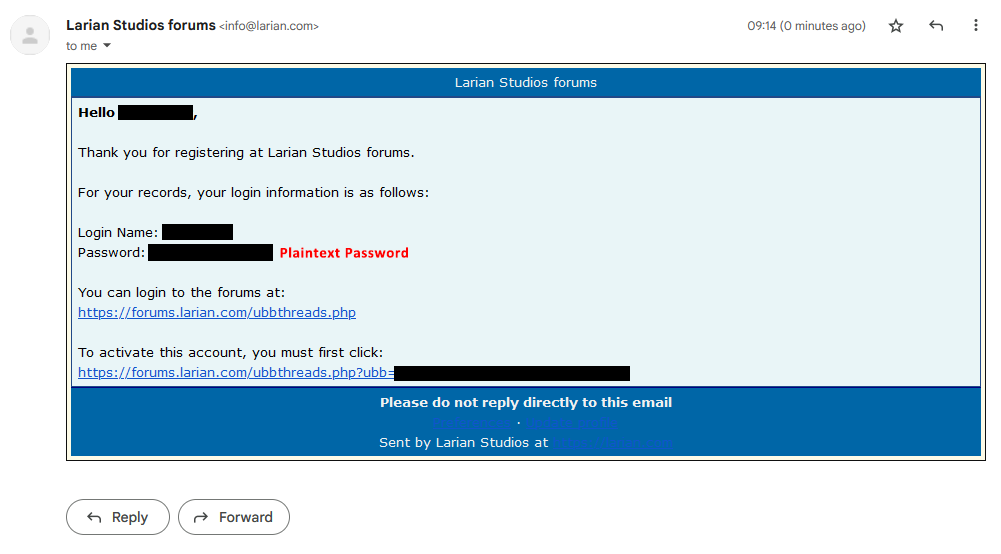this post was submitted on 28 Sep 2023
324 points (75.7% liked)
Games
32704 readers
1234 users here now

Welcome to the largest gaming community on Lemmy! Discussion for all kinds of games. Video games, tabletop games, card games etc.
Weekly Threads:
Rules:
-
Submissions have to be related to games
-
No bigotry or harassment, be civil
-
No excessive self-promotion
-
Stay on-topic; no memes, funny videos, giveaways, reposts, or low-effort posts
-
Mark Spoilers and NSFW
-
No linking to piracy
More information about the community rules can be found here.
founded 1 year ago
MODERATORS
you are viewing a single comment's thread
view the rest of the comments
view the rest of the comments

But that still means they had your plaintext password at some point.
Edit: which, as some replies suggest, may not actually be much of an issue.
I'm still skeptical about them returning it, however.
hashing on client side is considered a bad idea and almost never done.
you actually send your password "in plain text" every time you sign up.
Really everytime you log in too.
It's not a bad idea and it is often done, just not in a browser/webapp context.
Can you give an example where this is done?
Sorry, I should have included an example in my comment to clarify, but I was in a rush.
HMAC is a widely used technique relies on hashing of a shared secret for verifying authenticity and integrity of a message, for example.
Of course. You receive the password in plain on account creation, do the process you need, and then store it hashed.
That's fine and normal
When you create an account you type your password in. This gets sent to the server, and then it is hashed and stored
So there is a period of time where they have your unhashed password
This is true of every website you have ever made a password on
I've never even heard of the game studio I'm not defending them, I was replying to the person who said the company should never have your unhashed password, and explaining that they have to at some point in the process
So why would an agent at Larian have man-in-the-middle access between the password being sent to the server, and the auto-hash?
Um. Yeah, because you provided it to them. They have to have it in plain text in order to hash it.